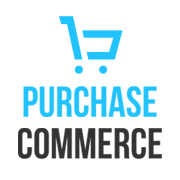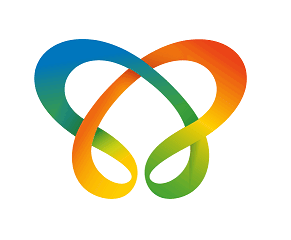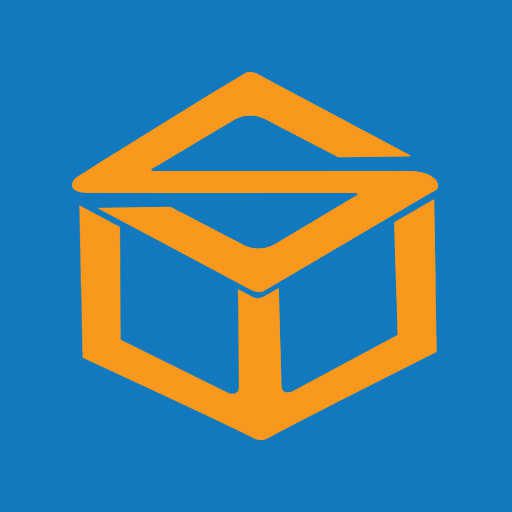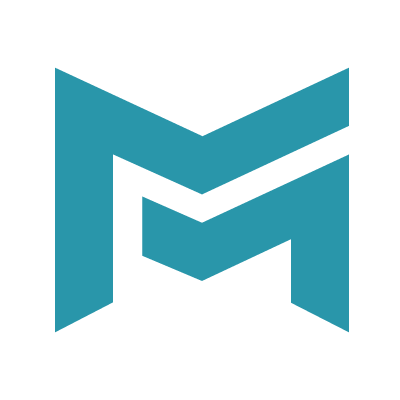Description

Inoday eCommerce Solution

Purchase Commerce
Comprehensive Overview: Inoday eCommerce Solution vs Purchase Commerce
As of my last update, Inoday is a recognized provider of business solutions, including eCommerce solutions. Although specific proprietary products like "Purchase Commerce" are not extensively documented in publicly available resources, I can discuss general characteristics of eCommerce solutions typically offered by firms like Inoday.
a) Primary Functions and Target Markets
Primary Functions:
-
Online Storefront Creation: Provides tools for building, managing, and customizing online storefronts that are user-friendly and optimized for a seamless shopping experience.
-
Shopping Cart System: Supports a robust shopping cart feature that can handle multiple transactions efficiently and smoothly, supporting various payment gateways.
-
Inventory Management: Integrates an inventory management system that updates stock levels in real-time across all sales channels to prevent overselling.
-
Order Management: Streamlines order processing, tracking, and fulfillment, often integrating with other business systems like ERP or CRM.
-
Customer Relationship Management (CRM): Enhances customer management through data analytics, customer segmentation, personalized marketing campaigns, and customer service management.
-
SEO and Digital Marketing Tools: Enhances visibility through search engine optimization and integrates various digital marketing strategies including email and social media marketing.
-
Analytics and Reporting: Delivers insights into business performance, customer behavior, and sales trends through customizable reporting features.
Target Markets:
eCommerce solutions like those offered by Inoday typically target:
- Small to Medium Enterprises (SMEs): Looking for cost-effective and scalable solutions to start or enhance their online sales presence.
- Retailers: Companies looking to expand their traditional retail operations with a digital storefront.
- B2B and B2C Businesses: Aiming to streamline their sales processes, enhance customer satisfaction, and manage relationships effectively online.
b) Market Share and User Base
Inoday’s specific solutions’ market share and user base data may not be publicly accessible. However, companies that offer comparable eCommerce platforms, like Shopify, Magento, or WooCommerce, collectively hold considerable shares of the eCommerce platform market. Generally:
- Shopify and WooCommerce dominate the small to medium-sized business segment due to their ease of use and extensive plugin ecosystems.
- Magento often caters to larger enterprises due to its customizable and scalable nature though it may require more technical expertise.
The adoption by individual companies like Inoday will significantly depend on regional markets, their integration capabilities with popular ERP solutions like Oracle NetSuite, and specific customer needs they address.
c) Key Differentiating Factors
Key differentiating factors likely revolve around:
-
ERP Integration: If Inoday offers strong native integration with ERP systems such as Oracle NetSuite (given their recognition in NetSuite solutions), this could be a significant advantage, allowing seamless operations from sales to accounting and inventory management.
-
Customization and Flexibility: Potential high adaptability to specific business processes without requiring extensive coding knowledge might be a significant selling point.
-
Customer Support and Services: Personalized support services and a comprehensive understanding of the clients’ business needs could differentiate their offering from more generic platforms.
-
Localized Solutions: Depending on their market focus, localization features in terms of language, currency, and regulatory compliance might offer a competitive edge.
-
Security Features: Stringent security measures to protect customer data and transaction information, which may include advanced encryption and fraud detection capabilities.
Ultimately, a comprehensive evaluation of Inoday’s offerings would ideally consider user testimonials, case studies, and detailed feature assessments to provide a clearer answer on their market impact and differentiation.
Contact Info

Year founded :
Not Available
Not Available
Not Available
Not Available
Not Available

Year founded :
2014
Not Available
Not Available
India
http://www.linkedin.com/company/purchase-commerce
Feature Similarity Breakdown: Inoday eCommerce Solution, Purchase Commerce
To provide a feature similarity breakdown for Inoday eCommerce Solution and Purchase Commerce, we need to focus on the key aspects each platform offers. Here’s a general comparison based on typical eCommerce solution features:
a) Core Features in Common
Both Inoday eCommerce Solution and Purchase Commerce likely share several core features common to most eCommerce platforms, such as:
- Product Catalog Management: Tools for adding, managing, and organizing products.
- Shopping Cart Functionality: Features that allow customers to select and purchase multiple products in a single transaction.
- Payment Processing: Integration with various payment gateways to handle transactions securely.
- Order Management: Systems for tracking orders from placement through fulfillment.
- Customer Account Management: Features allowing users to create accounts, track orders, and manage personal details.
- Inventory Management: Tools to monitor stock levels, update inventory status, etc.
- SEO Optimization: Built-in features to improve search engine ranking.
- Reporting and Analytics: Tools for tracking sales, website traffic, and other critical metrics.
- Mobile Responsiveness: Ensuring websites are optimized for viewing and purchasing on mobile devices.
- Security Features: Implementing SSL, data encryption, and other security measures.
b) User Interface Comparison
While I do not have direct visual access to the UI of these products:
- Inoday eCommerce Solution: Their user interface might focus on flexibility and customization, designed to align with specific business needs. Inoday, being a NetSuite partner, could emphasize seamless integration with other NetSuite modules and provide a clean, straightforward UI.
- Purchase Commerce: This platform may prioritize ease of use and customer engagement, potentially offering a more out-of-the-box experience with intuitive navigation and a modern design aesthetic.
Generally, comparisons would involve:
- Ease of Use: How simple is it for users to accomplish tasks?
- Customization Options: How extensible is the UI? Can businesses tailor it to meet their branding needs?
- Navigation: Is the platform easy to navigate for both administrators and customers?
c) Unique Features
Unique features would depend on specific capabilities developed by each platform:
-
Inoday eCommerce Solution:
- Likely to offer deeper integration with ERP systems like NetSuite.
- Could have distinctive workflow automation features due to its links with business management software.
- May provide specific solutions tailored for vertical industries, benefiting businesses with unique needs.
-
Purchase Commerce:
- Might focus on cutting-edge marketing tools such as AI-driven recommendations or personalized customer experiences.
- Could offer unique features around omnichannel retailing, facilitating seamless integration across various sales channels.
- Possibly provides a more straightforward setup process for small and medium enterprises looking for a quick start.
Overall, to determine unique features definitively, one would typically refer to product documentation, customer reviews, and direct feature comparisons available on vendor websites or tech review platforms. If you have access to demo versions or trials, evaluating these for your specific needs will also illuminate differences in capability and user experience.
Features

Not Available

Not Available
Best Fit Use Cases: Inoday eCommerce Solution, Purchase Commerce
Inoday eCommerce Solution, particularly through its offering of Purchase Commerce, is designed to serve specific types of businesses and scenarios effectively. Here’s an overview of the ideal use cases and scenarios for deploying these solutions:
a) Best Fit Businesses or Projects for Inoday eCommerce Solution
-
Small to Mid-sized Enterprises (SMEs):
- Scalability and Customization: Inoday eCommerce offers robust customization features, making it suitable for SMEs looking to scale their operations without investing in overly complex infrastructure.
- Budget Constraints: For businesses with limited budgets, Inoday provides cost-effective solutions that do not compromise on quality or functionality.
-
Retail and Wholesale Businesses:
- Product Management Needs: Companies involved in retail or wholesale that require efficient inventory and product management will benefit from Inoday’s capabilities in these areas.
- Multi-channel Sales: Businesses that operate across different sales channels, including online and brick-and-mortar stores, can effectively integrate and manage these channels through Inoday.
-
Startups:
- Rapid Deployment: Startups in need of a quick-to-market strategy can leverage Inoday’s out-of-the-box solutions for rapid deployment with minimal IT overhead.
b) Preferred Scenarios for Purchase Commerce
-
Integrated Supply Chain Management:
- Complex Purchasing Processes: Purchase Commerce is designed for businesses that rely heavily on efficient procurement practices and need software capable of integrating supply chain operations seamlessly.
- Vendor and Supplier Coordination: Companies requiring sophisticated vendor management and collaboration tools for streamlining purchase orders would find this solution valuable.
-
Manufacturing Sectors:
- Inventory and Resources Planning: Industries like manufacturing with complex inventories and need for precise resource planning benefit from the robust logistics and management tools within Purchase Commerce.
-
Custom B2B Transactions:
- Bespoke B2B Needs: Businesses operating in the B2B space that have unique purchasing processes or require custom workflows for handling bulk or frequent transactions would find Purchase Commerce fitting.
d) Catering to Different Industry Verticals or Company Sizes
-
Industry Verticals:
- Retail and eCommerce: Through features like product catalog management, inventory control, and customer interaction tools, Inoday caters well to the needs of the retail and eCommerce industries.
- Manufacturing and Distribution: Offers excellent supply chain and logistics management features to industrial and distribution companies.
- Service-based Industries: Supports service-oriented businesses with tools for managing customer interactions and service delivery efficiently.
-
Company Sizes:
- Small Businesses: Inoday offers solutions that are simple enough for small businesses to implement without requiring extensive IT resources.
- Mid-sized Enterprises: Provides the ability to scale operations through extensive modules and integrations, thus supporting growth and expansion for mid-sized companies.
- Large Enterprises: While primarily focused on SMEs, Inoday can accommodate larger enterprises through advanced customization options, although it might not cater to highly complex enterprise-grade solutions compared to other high-end systems.
Overall, Inoday eCommerce Solution, along with Purchase Commerce, offers versatility and functionality that align well with the needs of various business sizes and industry requirements, particularly where cost-effectiveness, ease of use, and quick deployment are prioritized.
Pricing

Pricing Not Available

Pricing Not Available
Metrics History
Metrics History
Comparing undefined across companies
Conclusion & Final Verdict: Inoday eCommerce Solution vs Purchase Commerce
To provide a conclusion and final verdict for Inoday eCommerce Solution and Purchase Commerce, we will consider factors like features, pricing, scalability, user experience, and customer support.
a) Best Overall Value
Inoday eCommerce Solution appears to offer the best overall value for businesses seeking a comprehensive and flexible platform. This solution is well-suited for mid to large-sized enterprises looking for customization and integration capabilities, as well as robust support.
b) Pros and Cons
Inoday eCommerce Solution
Pros:
- Customizability: Highly customizable to suit various business needs.
- Integration: Offers seamless integration with other enterprise solutions, which is beneficial for businesses already using ERP systems like NetSuite.
- Scalability: Capable of scaling with business growth, supporting complex business processes and a large number of SKUs.
- Support: Provides strong after-sales support and client service, ensuring smooth operation.
Cons:
- Cost: Higher initial setup and ongoing costs compared to smaller or more basic platforms.
- Complexity: Implementation can be complex and time-consuming, requiring dedicated IT resources or expert assistance.
Purchase Commerce
Pros:
- Ease of Use: Intuitive interface that is easy to learn for users with limited technical expertise.
- Affordability: More affordable, making it a suitable choice for small to medium-sized businesses.
- Quick Setup: Faster implementation time, allowing businesses to launch their online presence swiftly.
Cons:
- Limited Customization: Less flexibility in terms of customization and integration with complex systems.
- Scalability Issues: May not scale as effectively in comparison to larger enterprise solutions if the business grows significantly.
- Features: May lack some advanced features required by large businesses or those with unique eCommerce needs.
c) Recommendations
For businesses deciding between Inoday eCommerce Solution and Purchase Commerce, the choice largely depends on the size and specific needs of the business:
-
Large Enterprises or Growing Businesses: If you anticipate rapid growth or have complex eCommerce needs, Inoday eCommerce Solution is advisable. Its robust features and scalability make it a future-proof option, albeit at a higher cost and complexity.
-
Small to Medium-Sized Businesses: If you need an affordable, easy-to-use solution with quicker implementation, Purchase Commerce could be the better option. It provides essential eCommerce functionalities without the burden of high upfront costs or time-consuming setups.
In conclusion, evaluate your business’s current needs, budget, and growth projections carefully. While Inoday offers comprehensive capabilities for those who need them, Purchase Commerce provides an accessible entry point for businesses with straightforward needs.
Add to compare
Add similar companies




